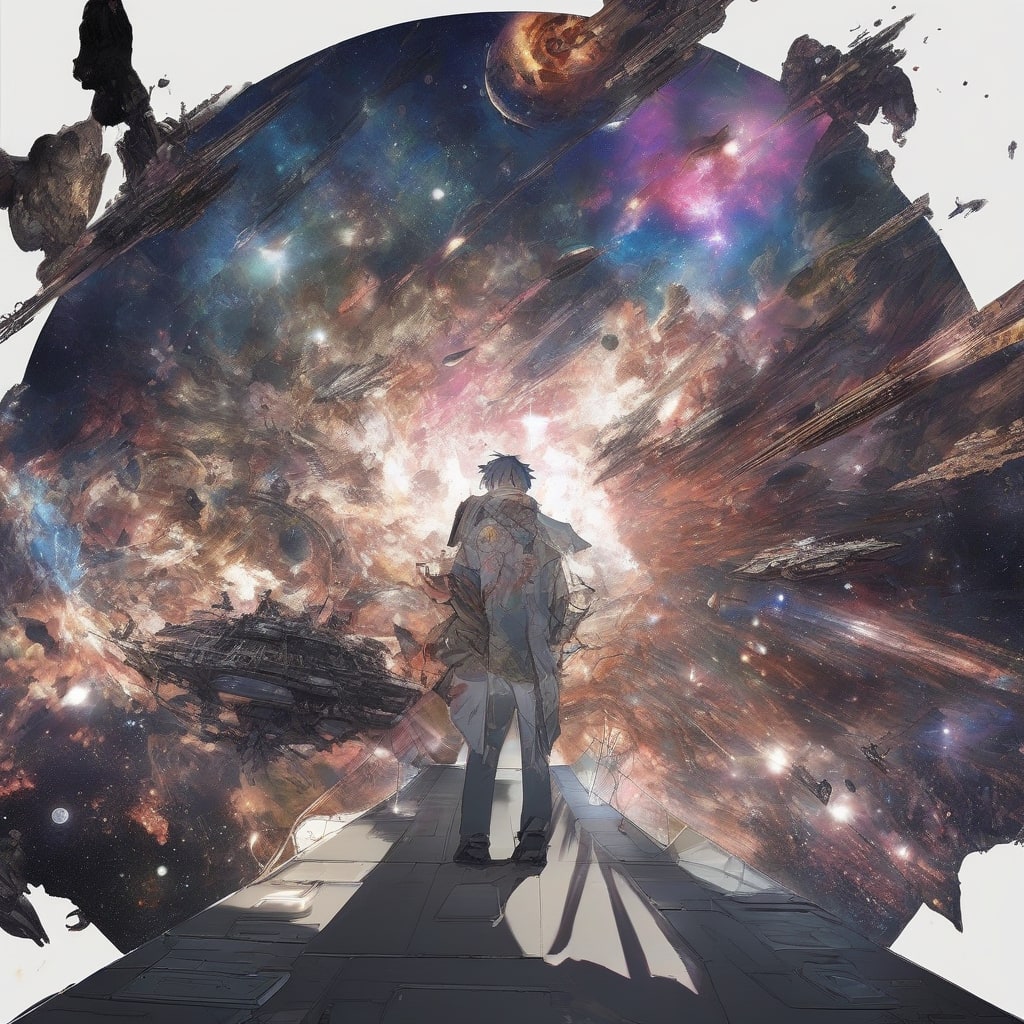
I trust this message finds you well. I would like to draw your attention to a captivating scientific concept known as the Big Crunch Theory. This theory is rooted in Albert Einstein's esteemed theory of general relativity.
In essence, the Big Crunch Theory posits that every event in the universe follows a cyclical pattern of ebb and flow. When an event reaches its zenith, the reverse effect is likely to occur.
The Big Bang, a widely recognized theory, suggests that our universe originated from a colossal burst of energy. However, opinions diverge when it comes to understanding how the universe will ultimately meet its end. Various theories, such as the Big Freeze and the Big Rip, have been proposed.
Nevertheless, the Big Crunch Theory is widely regarded as the most plausible scenario. It asserts that after the universe reaches its maximum expansion, the reverse process will commence. The universe will begin to contract, ultimately culminating in a state of immense density and heat, akin to the conditions that existed during the Big Bang.
As determined by the energy present, it will start to collapse and eventually form a massive black hole containing all matter due to the conditions in the singularity. The size will be compressed to a minuscule dimension.
Although mathematical calculations indicate the possibility and even likelihood of the Big Crunch, there exists a challenge for individuals who devote their professional lives to comprehending such inquiries. At present, we lack a comprehensive understanding of the subject matter.
In the context of comprehending the entirety of the universe, there are a few unknown factors that will ultimately determine our fate. Firstly, the expansion of the universe seems to be influenced by the interplay of two key elements: density and outward momentum. Density directly correlates with the amount of gravity present, meaning that a denser universe would result in stronger gravitational forces.
This, in turn, implies that everything would eventually gravitate towards everything else.and the final Big Crunch becomes And the inevitability that although there is no friction in space, the effect of gravity would be more than sufficient to counteract the initial outward momentum caused by the Big Bang and all matter would essentially return to where it came from. However, the problem with this is that observations of the universe have shown that things are not behaving as simply as we would expect. The outer reaches appear to be expanding at a faster rate than those closer to us, and galaxies are actually moving further apart from each other. Scientists do not know why this is happening, but they have given a name to this unknown entity: dark energy. This extra element in the expansion of the universe means that there are two potential outcomes.
The future of the universe is a topic of great interest and debate among scientists. One possibility is that the universe will continue to expand forever, with objects moving further and further apart from each other. This expansion could eventually lead to a state where everything is so far apart that it effectively freezes, with no possibility for further interactions or changes.
Another possibility is that the universe will eventually undergo a Big Crunch, where the forces of gravity overcome the expansion and cause everything to collapse back together. This could happen if there is not enough dark energy in the universe to counteract the gravitational forces.
Some scientists believe that the current accelerated expansion of the universe is a sign that the Big Crunch is inevitable. However, a recent report suggests that this expansion may be a temporary phenomenon and that the universe will eventually begin to contract within tens of billions of years.
The ultimate fate of the universe is still unknown, and it is a topic of ongoing research and debate among scientists.
If we assume that there is an insufficient amount of dark energy and that the Big Crunch does occur, it will not be as spectacular as the Big Bang. The universe will begin to contract evenly due to the consistent distribution of matter. This process will be gradual at first, but it will accelerate as galaxies approach each other and gravitational forces intensify. In approximately one hundred billion years, temperatures will rise significantly, causing stars to explode and vaporize. All objects will disintegrate into their constituent atoms, which will then begin to break apart. As all matter from the universe compacts into a small space, the situation will become extremely chaotic. Some predictions suggest that space-time will become so distorted that it will shatter into droplets, obliterating all concepts of time.
The concept of time and direction would become irrelevant. Of course, no living organism would have been able to survive to this point in time. We would have all perished long before this. Therefore, with our limited understanding of the processes occurring in the universe, it is impossible to ascertain with certainty how everything will conclude.
One possible scenario is the Big Crunch, where every particle of matter returns to its point of origin, resulting in an unimaginably massive black hole. What transpires at that juncture is purely speculative and could potentially lead to the birth of a new universe. It is also plausible that this sequence of events has already transpired numerous times, and we exist in just another iteration of a cyclical pattern of expansions and contractions. However, only those individuals who intend to live for billions of years will genuinely need to be concerned about this matter.
About the Creator
Sunny
https://www.instagram.com/business.techlab?igsh=MmVsMXdvOTVsbm80





Comments
There are no comments for this story
Be the first to respond and start the conversation.